Viindoo Digital Marketing - All your marketing tools in one place
Digital Marketing Software that's easy to use

Execute and manage multi-channel marketing campaigns
- Build up content strategy for the right target, at the right time, with right messages.
-
Increase customer touchpoints, providing a seamless and cross-platform experience.

Measure and optimize marketing activities
- Accurately identify sources of potential customers - from which channel/ campaign/ content.
-
Form up customers' journey, from which analyze buying trends and behaviors.

Store customer data, manage customer care activities
- Automatically create leads, and store the entire history of customer interactions.
- Manage sales pipeline, customer segmentation, from which build up automated customer supports scenarios.
- Keep track of individual/sales team revenue goals. Detailed real-time performance reports.
Visualize Marketing activities with a dynamic reporting system
-
Reporting system on multi-dimensional analysis and marketing effectiveness updated in real time.
-
Assess trends, buying habits, customer needs, customer segments visually through trend chart types (Column chart, Line chart, Pie chart, Cohort chart, Pivot chart, etc.)
-
Analyze business opportunities, customer sources, sales channels, sales effectiveness and win/loss ratio, the effectiveness of Marketing, communication, advertising campaigns, etc.
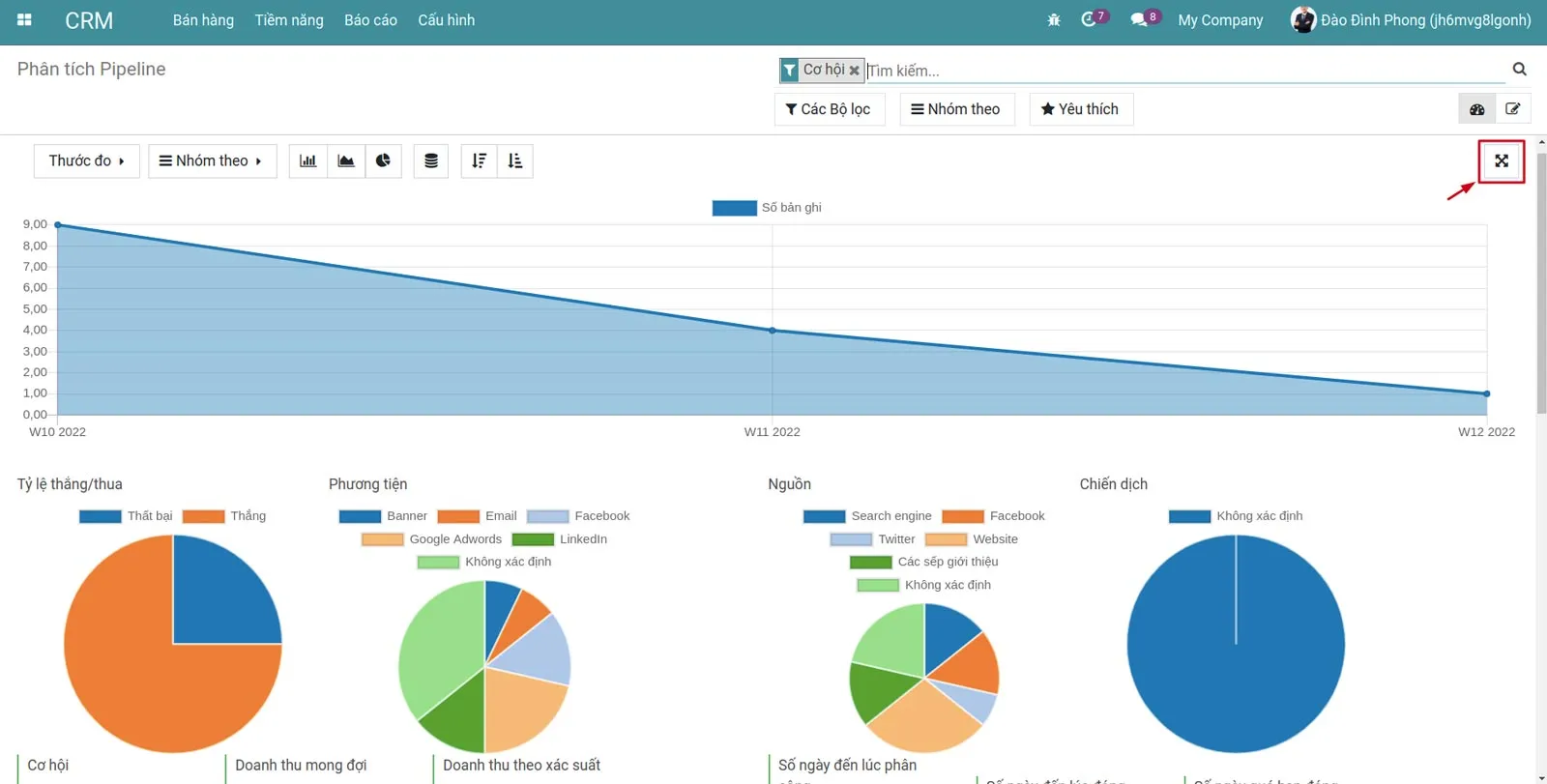
Viindoo Digital Marketing Software That Grows With You
Get in touch, we'll provide the price that fits your budget, you can do it all with Viindoo.

Sales

POS

Purchase

Inventory

Accounting

MRP

Website

Ecommerce

CRM

Social MKT

Employee

Project
Frequently asked questions
With Viindoo Digital Marketing Software, you can manage various digital marketing activities, including email marketing, social media marketing, content marketing, SEO optimization, lead generation, and more.
Yes, Viindoo is designed to cater to businesses of all sizes, including small and medium-sized enterprises. Its flexible and scalable features make it a perfect solution for businesses looking to improve their digital marketing efforts.
Yes, Viindoo offers seamless integrations with various third-party tools, CRM systems, Social media platforms (eg: Facebook, LinkedIn) and analytics platforms (eg: Google Analytics, Google Search Console, Google Tag Manager). This allows you to synchronize your data and leverage existing marketing assets for better insights and efficiency.
Yes, Viindoo offers social media scheduling and automation features, allowing you to plan and publish your content at optimal times. This helps you maintain a consistent online presence and saves time in managing your social media channels.
Start with Viindoo to increase the competitiveness of the Enterprise
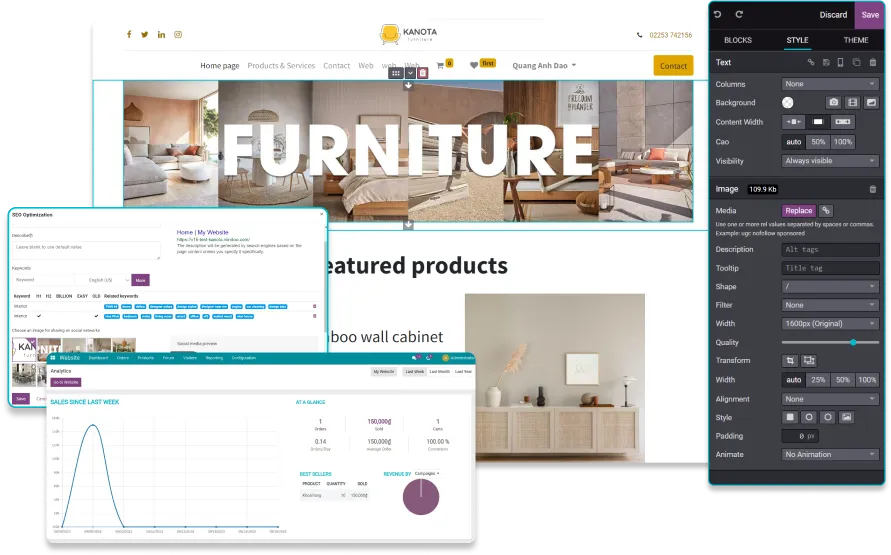
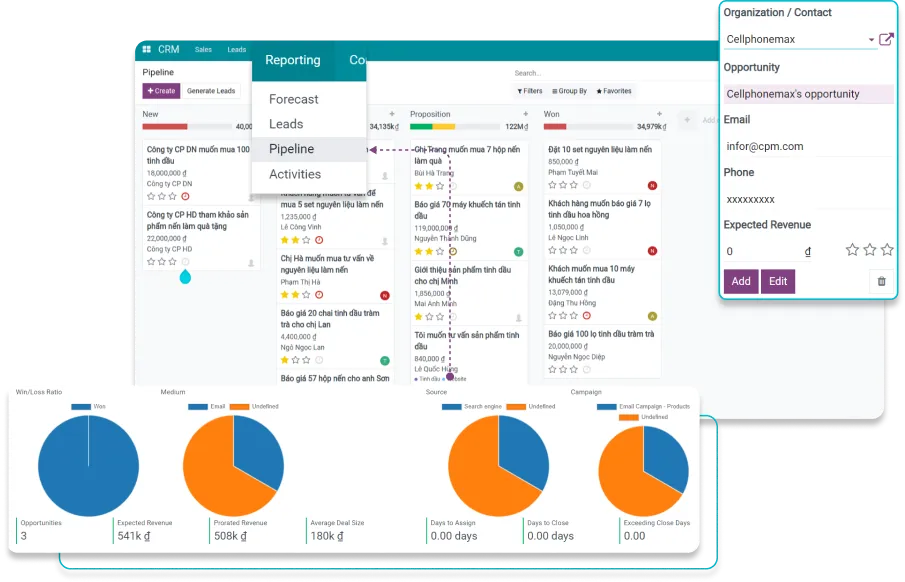

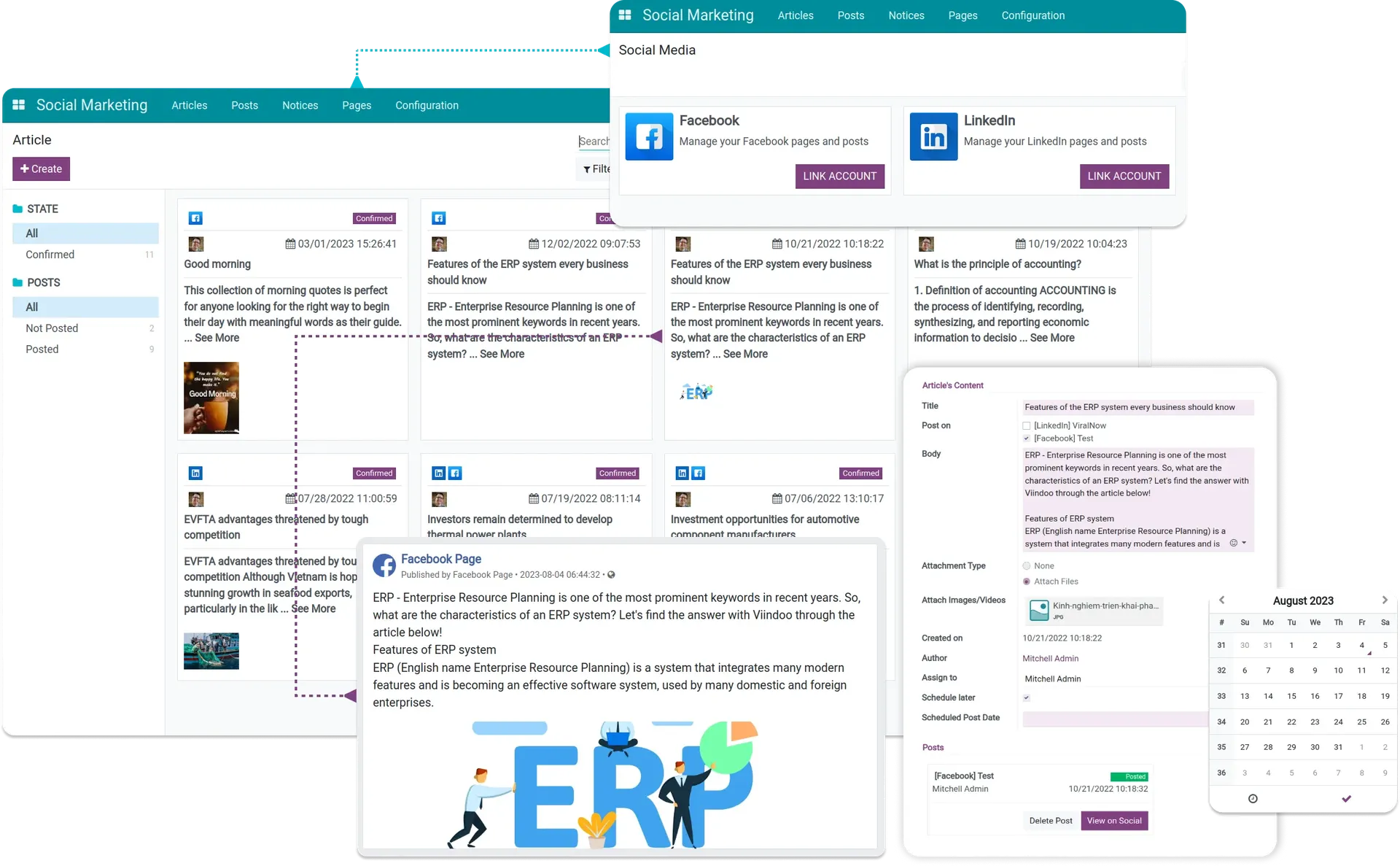
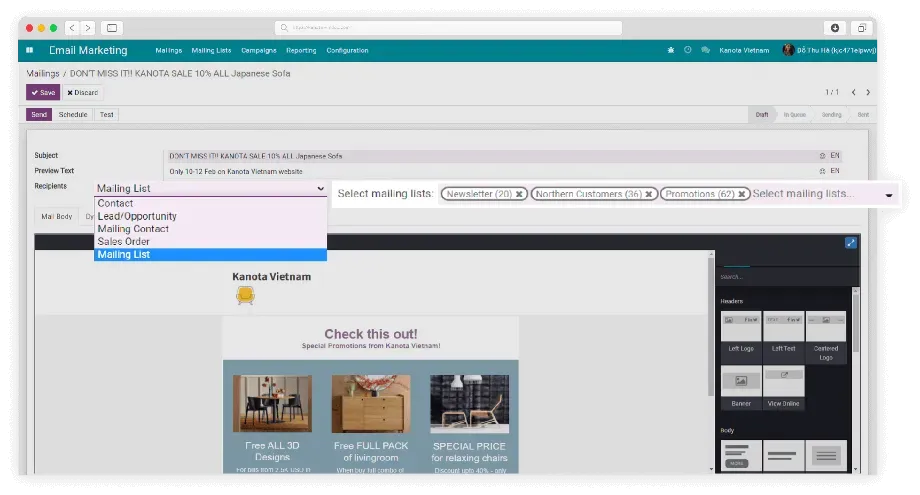
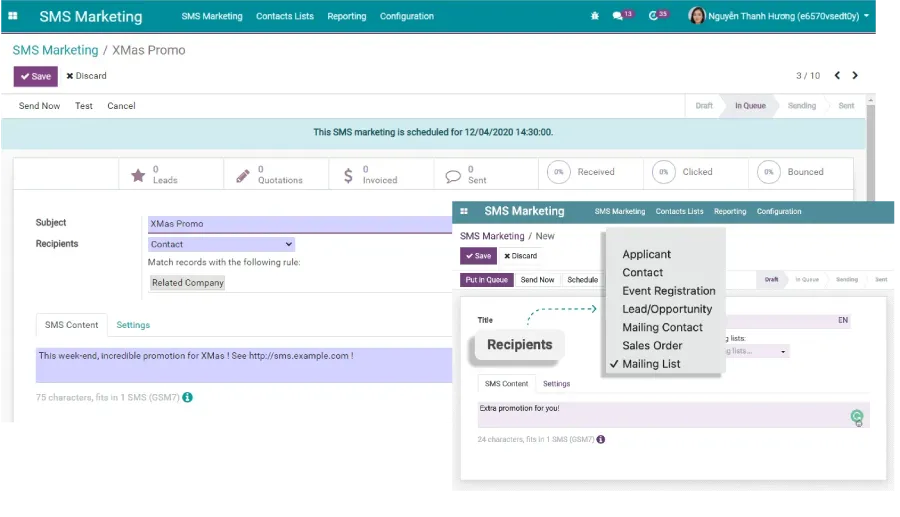
 Social Marketing
Social Marketing Forum
Forum Website
Website Blogs
Blogs Event
Event Email Marketing
Email Marketing Survey
Survey CRM
CRM Contacts
Contacts